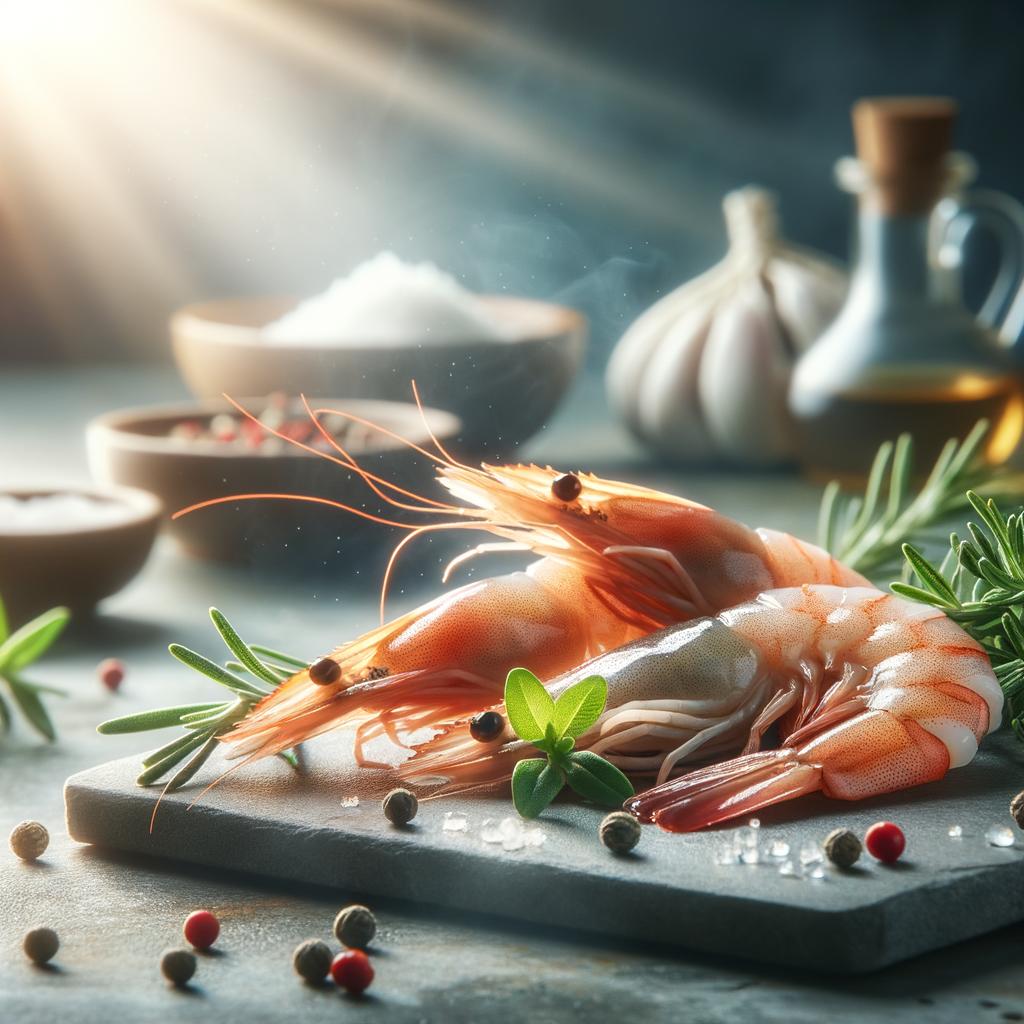Raw Shrimp

Description
Raw shrimp, a delightful ingredient from the sea, is a precious gem in the culinary world. These delicate creatures boast a unique color palette, transitioning from a grey-blue hue in their raw state to a mesmerizing pink when cooked. Their bodies are curled into a perfect spiral, and their texture is firm yet tender, almost melting in your mouth upon the first bite. Their flavor profile is subtly sweet with a hint of the ocean, a unique characteristic that sets them apart from other seafood.
Primary Uses
Shrimp is a versatile ingredient that finds its place in a plethora of cuisines around the globe. From the succulent shrimp gumbo of Louisiana to the spicy Tom Yum Goong of Thailand, shrimp is a key component that lends its distinctive flavor to these dishes. It can be boiled, grilled, sautéed, or even served raw in some sushi dishes. Aside from its culinary uses, shrimp plays a role in certain cultural traditions, such as the annual "Blessing of the Fleet" in the United States where communities gather to pray for a safe and bountiful shrimp harvesting season.
History
The history of shrimp is as fascinating as its taste. It has been a part of human cuisine for thousands of years, with evidence of shrimp consumption dating back to the ancient civilizations of Greece and Rome. In the Middle Ages, shrimp was considered a luxury and was often served at royal banquets. Over time, shrimp has evolved from a luxury ingredient to a staple in many households, thanks to modern farming and fishing techniques. There's an old folklore among seafarers that sighting a shrimp at sea is a good omen, a sign of a prosperous voyage ahead.
Nutritional Information
Shrimp is not only a culinary delight but also a nutritional powerhouse. It is low in calories yet rich in protein, providing essential amino acids for our bodies. Shrimp is also a good source of vitamins D and B12, and minerals like iodine, selenium, and zinc. It's particularly high in omega-3 fatty acids, which are known for their heart health benefits. However, it's worth noting that shrimp is high in cholesterol, so moderation is key for those monitoring their cholesterol intake. Compared to other seafood like fish, shrimp offers a comparable nutritional profile but with a distinctive flavor that sets it apart.

